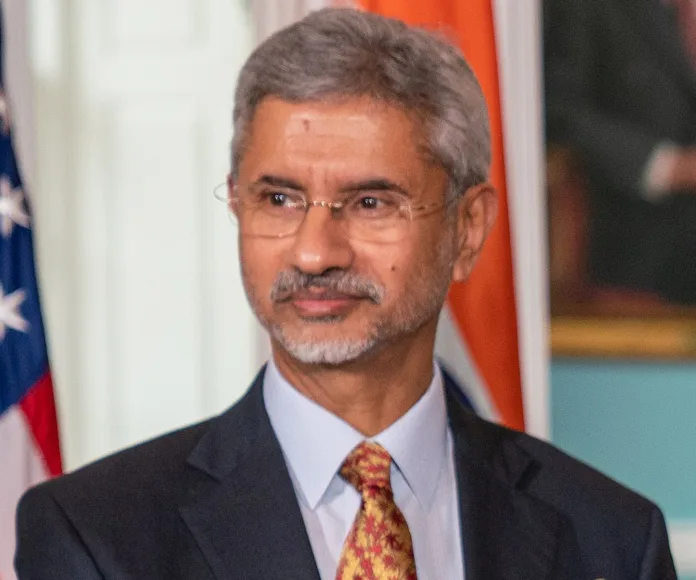India’s External Affairs Minister outlines steps taken in the Galwan Valley and Pangong Tso, as the government prepares for further diplomatic talks
In a pivotal update on India-China relations, External Affairs Minister S. Jaishankar addressed the Rajya Sabha on December 5, 2024, providing significant clarity on the progress made in disengaging military forces in Eastern Ladakh. His comments came as part of an ongoing effort to inform the nation about the status of sensitive border issues with China, particularly after heightened tensions in recent years.
Jaishankar confirmed that the disengagement of troops in key areas of Ladakh, including Depsang and Demchok, had been completed through a methodical, step-by-step approach. This development marks a major milestone following earlier disengagements at Galwan Valley and Pangong Tso, where buffer zones were established to prevent future conflicts. Jaishankar elaborated on the measures taken to avoid further friction, emphasising that while the steps had been temporary, they were crucial in maintaining stability along the border.
However, the Minister underscored that these measures were not set in stone and could be revisited based on the evolving situation. “Based on local conditions, we have made calculated efforts to avoid further escalation. The disengagement is designed to protect our national security while ensuring peace along the border,” he remarked. This points to the Indian government’s readiness to adapt as necessary, reinforcing their commitment to safeguarding the nation’s interests.
Embed from Getty ImagesJaishankar’s statement also drew attention to the complex and evolving nature of India-China relations. The friction points that had sparked previous confrontations, particularly in 2020, were not overlooked in the Minister’s address. By addressing regions like Galwan Valley, where both nations suffered casualties, Jaishankar reassured the public that significant steps had been taken to resolve these flashpoints. The approach, according to the External Affairs Minister, is not a one-size-fits-all solution. It is based on an intricate understanding of ground realities, with the ultimate aim of ensuring peace and security for both nations.
As Jaishankar presented these developments, his speech was met with some drama in the Rajya Sabha. Opposition MPs, eager to seek clarifications on the details, were denied the opportunity to do so by the House Chairman, Jagdeep Dhankhar. This led to an uproar, with several opposition members walking out of the session. The Chairman, expressing his concerns, said that the lack of proper debate was diminishing the institution’s credibility. Despite this, Jaishankar continued his address without further disruption.
The Minister’s remarks about India’s “resolute and firm” stance on national security stood out as a reminder that while dialogue with China is progressing, India will not compromise on its sovereignty. Jaishankar reinforced that India would maintain a strong position, ensuring that any future de-escalation talks would not undermine the country’s strategic interests.
Jaishankar’s statement comes at a critical juncture in bilateral relations between the two countries, which have been marred by years of border tensions. Since the violent clashes of 2020, the two nations have worked through various diplomatic and military channels to reduce tensions. However, Jaishankar’s comments suggest that while disengagement has been achieved, the next phase of de-escalation remains uncertain. The focus now turns to diplomatic engagements, with India seeking a peaceful resolution that does not come at the expense of its territorial integrity.
Looking ahead, Jaishankar hinted that further talks would be necessary to address long-standing issues. The next steps, he explained, would involve continued cooperation and communication between military officials, along with sustained dialogue between the governments. This approach reflects a belief in diplomacy as the primary tool for managing complex international relations, despite the many challenges that remain. He also stressed that India’s national security priorities would remain at the forefront of any negotiations.
While the country remains on edge, given the lingering uncertainty surrounding the border, Jaishankar’s message was one of cautious optimism. The progress made so far in disengagement is promising, but the true test will lie in future talks aimed at further reducing tensions. Both sides have invested considerable effort in maintaining peace, but achieving lasting stability will require patience, flexibility, and a continued commitment to diplomacy.
In conclusion, while the disengagement in Ladakh marks a significant step forward, the road to de-escalation is far from over. India’s stance remains resolute, and the government’s ongoing engagement with China suggests that both sides are committed to finding a peaceful solution. As Jaishankar aptly put it, the situation remains fluid, and future talks will be crucial in determining the trajectory of India-China relations.
